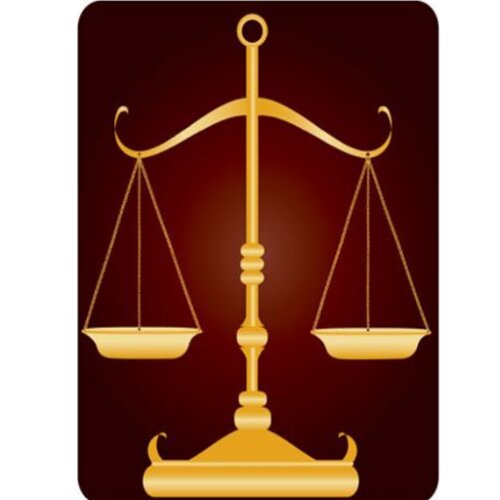Best Estate Planning Lawyers in Indonesia
Share your needs with us, get contacted by law firms.
Free. Takes 2 min.
Or refine your search by selecting a city:
List of the best lawyers in Indonesia

Jiwangga Law Office | Lawyer Surabaya | Advokat Surabaya | Pengacara Surabaya
30 minutes Free ConsultationAbout Estate Planning Law in Indonesia
Estate planning in Indonesia involves organizing one's assets and affairs to ensure a smooth transition of wealth following a person's passing. This planning encompasses the management of property, drafting of wills, setting up trusts, and may involve dealing with inheritance taxes. The legal framework governing estate planning in Indonesia is influenced by the Civil Code, the Marriage Law, and various religious and customary laws, making it a complex area that often requires expert navigation.
Why You May Need a Lawyer
There are various scenarios where legal assistance in estate planning might be necessary:
- Drafting a Will: Ensuring that your will is legally valid and effectively conveys your wishes.
- Complex Family Situations: Such as blended families or multiple marriages which can complicate inheritance matters.
- Significant Assets: Managing and distributing large estates, including businesses, requires careful planning.
- Tax Implications: Estate planning can help minimize taxes and maximize the value of your legacy.
- Trusts and Guardianships: Establishing trusts or appointing guardians for minor children.
- Disputes: Handling disputes among heirs or contesting a will.
Local Laws Overview
Key aspects of estate planning laws in Indonesia include:
- Inheritance Law: Governed by the Indonesian Civil Code, local customary laws (Adat), and religious laws, making the context diverse.
- Marriage Property Regime: The law in Indonesia categorizes property into acquired before marriage (separate) and during marriage (joint) with implications for inheritance.
- Heirs and Distribution: The law recognizes heirs based on blood relations or marriage, influencing the distribution of an estate.
- Wills: Must comply with formal requirements to be valid, and different rules apply for different groups based on religion or ethnicity.
- Taxes: Estate and inheritance may be subject to taxation which requires careful planning to manage effectively.
Frequently Asked Questions
What is included in estate planning?
Estate planning typically includes the drafting of wills, setting up trusts, making advance medical directives, and planning the distribution of the estate upon death.
Can I write my own will?
While you can write your own will, it is advisable to seek legal assistance to ensure it is legally binding and accurately reflects your wishes.
How are assets distributed without a will?
If someone passes away without a will, their assets are distributed according to the intestacy laws applicable to their situation, which could follow civil, customary, or religious laws.
What is the role of an executor?
An executor is responsible for managing the estate’s settlement process according to the deceased's will, including paying debts and distributing assets to heirs.
How does religious law affect estate planning?
In Indonesia, religious laws, particularly Islamic inheritance laws, can significantly impact estate distribution for those who practice Islam.
What happens if there is a dispute among heirs?
Disputes among heirs can be mediated or litigated, often requiring legal intervention to reach a resolution.
Are there taxes on inheritance?
Yes, taxes may apply to inheritances, and it is crucial to plan for these in advance to minimize their impact on the estate.
What is a trust and why use it?
A trust is an arrangement where a trustee holds assets on behalf of beneficiaries; it is used for estate planning to manage assets and ensure their proper transfer.
How do marital laws affect my estate plan?
The marriage law impacts how joint and separate property is handled, affecting distribution in case of death or divorce.
Can I change my estate plan once it's established?
Yes, estate plans can and should be updated regularly to reflect changes in your life circumstances or assets.
Additional Resources
Consider consulting resources such as:
- The Indonesian Ministry of Law and Human Rights: Provides legal guidance and regulatory information.
- Local Notaries: Can offer advice on the drafting of wills and the establishment of trusts.
- Religious Organizations: For those whose estate plans may be governed by religious inheritance laws.
- Legal Aid Societies: Offer free or reduced-fee legal services to those who qualify.
Next Steps
If you need legal assistance with estate planning in Indonesia, consider these steps:
- Consult with a Lawyer: Approach a reputable law firm specializing in estate planning.
- Gather Documentation: Prepare financial statements, property deeds, and a list of assets and liabilities.
- Consider Your Heirs: Decide who will inherit your assets and how you want your estate divided.
- Review Regularly: Revisit your estate plan regularly, especially after major life changes.
Lawzana helps you find the best lawyers and law firms in Indonesia through a curated and pre-screened list of qualified legal professionals. Our platform offers rankings and detailed profiles of attorneys and law firms, allowing you to compare based on practice areas, including Estate Planning, experience, and client feedback.
Each profile includes a description of the firm's areas of practice, client reviews, team members and partners, year of establishment, spoken languages, office locations, contact information, social media presence, and any published articles or resources. Most firms on our platform speak English and are experienced in both local and international legal matters.
Get a quote from top-rated law firms in Indonesia — quickly, securely, and without unnecessary hassle.
Disclaimer:
The information provided on this page is for general informational purposes only and does not constitute legal advice. While we strive to ensure the accuracy and relevance of the content, legal information may change over time, and interpretations of the law can vary. You should always consult with a qualified legal professional for advice specific to your situation.
We disclaim all liability for actions taken or not taken based on the content of this page. If you believe any information is incorrect or outdated, please contact us, and we will review and update it where appropriate.
Browse estate planning law firms by city in Indonesia
Refine your search by selecting a city.















